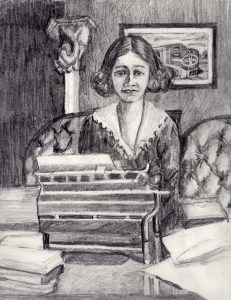On this website you will find
Peggy Chong is The Blind History Lady
In the spring of 2025, Aftersight, the Colorado Radio Reading service began a podcast of archived stories from The Blind History Lady. You can listen to them at the link below.
https://aftersight.org/audio-publications/blind-history-lady/
In 2024, The Blind History Lady had an opportunity to gather more than 7,000 records from the library of Congress regarding an award for the Blind, given by the Harmon Foundation. The award was to have been awarded in 1928. Due to much mis calculation, the death of the William E. Harmon, the founder and executive director of the foundation, the awards were ot given until 1932. The documents are in the process of being transcribed for my research and have uncovered a totally unexpected view of the awards and the lives of many blind individuals during that time period. In 2025, The Blind History Lady will begin sharing some of the people found in those records through my monthly emails. If you have not yet signed up for my email list, send me an email requesting to become one of my readers at theblindhistorylady@gmail.com.
Many of the stories have more to be told than in the short bios presented each month. Look for longer stories at
Smashwords – The Blind History Lady Presents
Drop by my pages at Smashwords and download the whole story.
IT IS IN PRINT — WHAT YOU ALL HAVE BEEN WAITING FOR!
Don Mahoney: Television Star: Chong, Peggy: 9781098082956: Amazon.com: Books
My first book in print! Get your copy today!
Read about Don Mahoney, a man who decided to keep his blindness a secret and did so for almost ten years.
Please get your copy and encourage others to purchase a copy today.
This book is a great story for school and public libraries to include in their persons with disabilities collection.
Get my book, read it and tell me what you think.
Peggy Chong
Speaking Fees
Local or Conference Presentations
30-50 minutes$ 150.00
1 hour-90 minutes$ 200.00
Long Distance
Expenses plus speaking fees
Any specialized handout requests are an additional charge depending on the request.
I look forward to sharing with you the history of our blind ancestors. Contact Peggy Chong at chongpeggy10@gmail.com or 303-745-0473
The Blind History Lady is pleased to present to your group via ZOOM, conference call and more. If you would like a presentation from The Blind History Lady, please send an email to theblindhistorylady@gmail.com
Comments from Readers
January 2025
This is one of the most heart touching and remarkable stories you’ve written. It made me cry with both sadness and joy. This guy is from Colorado and our recent ears. Why haven’t I heard of him before now?
Alice
December 2024
I always look forward to your monthly column. I love the fact that this
judge showed that blindness and being color–blind are okay and can be
positives.
Kathy
November 2024
Dear Peggy,
Thank you so much for your fabulous presentation to our low vision group coordinators on Friday! You opened up an entirely new world of fascination and “wanting to know more” about so many individuals who have risen above seemingly insurmountable circumstances to experience meaningful lives, filled with dignity and purpose.
During your presentation, I felt like I was curled up on a cozy couch with a book I could not put down. We all look forward to the next opportunity to be, once again, in your audience!
Many, many thanks!
Sincerely,
Laurie
